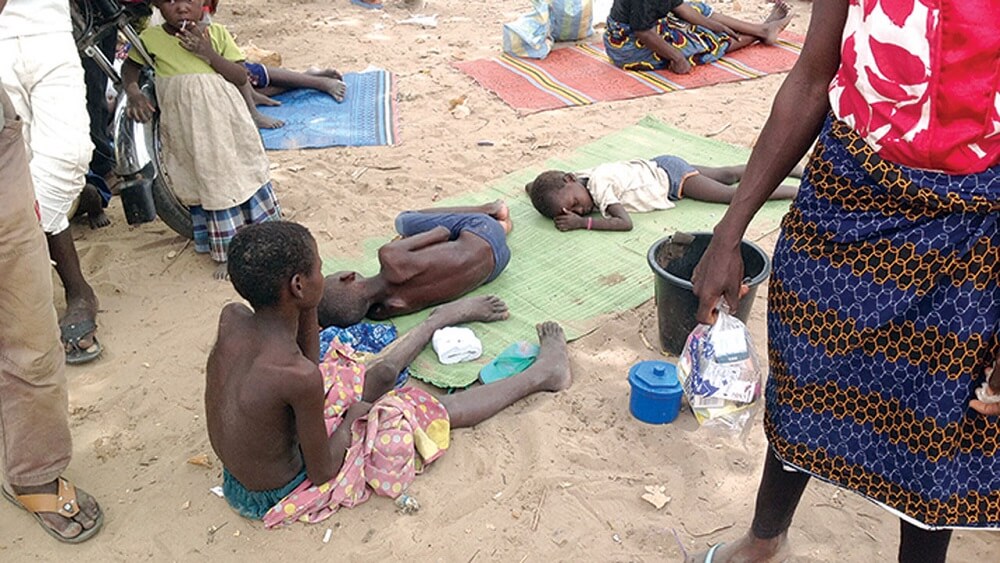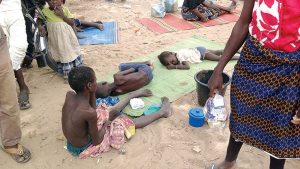
MEASLES OUTBREAK KILLS FIVE IN KADUNA COMMUNITY

A measles outbreak has been recorded in Unguwar Kanawa community, Tankarau, Dutsen Abba, in Zaria Local Government Area of Kaduna State, claiming the lives of at least five children and leaving many others bedridden.
The outbreak has been linked to widespread vaccine refusal due to misconceptions about immunisation among villagers.
According to the Village Head of Unguwar Kanawa, Nasiru Yunusa, two children from the same family died just seven days ago.
Yunusa attributed the deaths to the community’s initial reluctance toward vaccination, saying, “Two-thirds of our people didn’t like vaccinating their children due to misconceptions. But now, many are changing their attitude because of the sickness and deaths we are witnessing.”
The village head lamented the lack of healthcare facilities in the area, noting that the nearest Primary Health Centre is about seven kilometres away.
“Women now deliver at home because there’s no clinic here. We are appealing to the government to provide a health clinic for us,” he pleaded.
A housewife in the community, Saude Safiyanu, recounted her tragedy, having lost four of her children to preventable illnesses.
“We didn’t vaccinate our children, and we didn’t take them to the hospital for immunisation because my husband didn’t approve it.
“This is how I lost four of my six children after the first child. But I later understood the importance of vaccination, so I begged him to allow me to vaccinate the last girl I gave birth to, and now she is very healthy,” she said.
Safiyanu noted that resistance to vaccination was once widespread among men in the community, but recent experiences were shifting opinions.
“In the past, our men always opposed immunisation, but now their mindset is changing after many children fell sick and some died,” she added, urging women to ensure their children receive life-saving vaccines.
The Kaduna State Primary Health Care Board has confirmed the outbreak and intensified routine immunisation efforts as a key strategy to reduce maternal and child mortality.
The Director of Disease Control and Immunisation at the board, Hamza Ibrahim Ikara, said, “In response to this outbreak, I have directed the Local Government Surveillance Officer to strengthen surveillance. We are covering all communities within Ungwan Kanawa to ensure no child showing symptoms is missed.”
Ikara explained that outreach teams were visiting households to administer vaccines and had secured the support of male heads of households, a crucial step in communities where women often need permission to vaccinate their children.
“Today by 4 p.m., our vaccination teams will visit the community to carry out vaccinations. Our goal is to quickly stop the outbreak within this community and across the local government area,” he added.
UNICEF Chief of Field Office in Kaduna, Dr. -, who visited the community as part of the Vaccination Week and Polio Vaccination campaign in collaboration with the state government, expressed concern over the high number of unvaccinated children.
“Three years ago, this community had 100% refusal for vaccination. Now, as you can see, several children are suffering from measles,” she said.
Birukila praised the efforts of religious and traditional leaders in encouraging immunization acceptance and called for continued support from all stakeholders.
“We appeal to parents, community leaders, the government, and partners like UNICEF and WHO to encourage the uptake of immunisation. Many illnesses are now appearing because children are either not immunized or not immunized on time,” she said.
The current vaccine shortage in the country poses additional challenges, according to Birukila.
“We are trying to find vaccines for measles amid national shortages. It’s crucial we secure predictable vaccination supplies to protect the children,” she noted.
